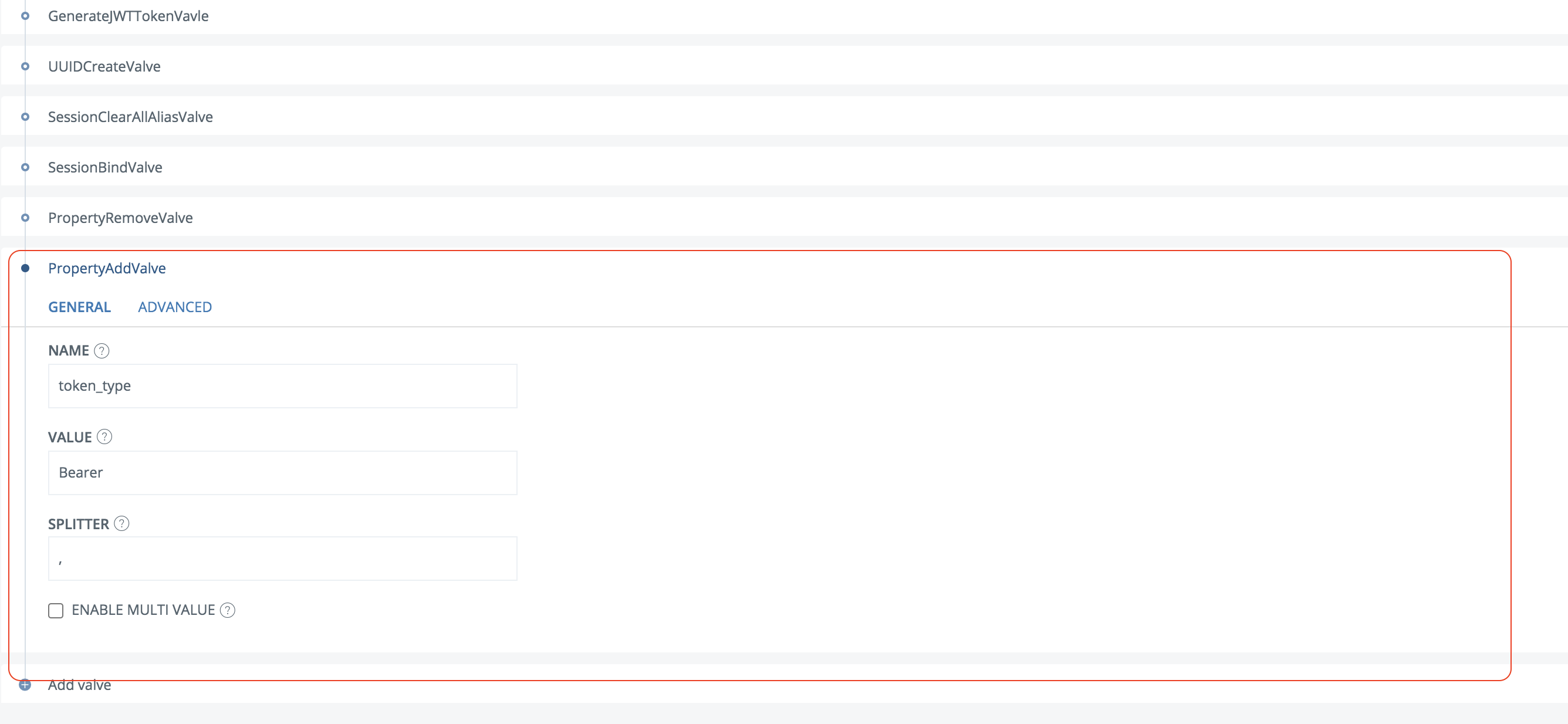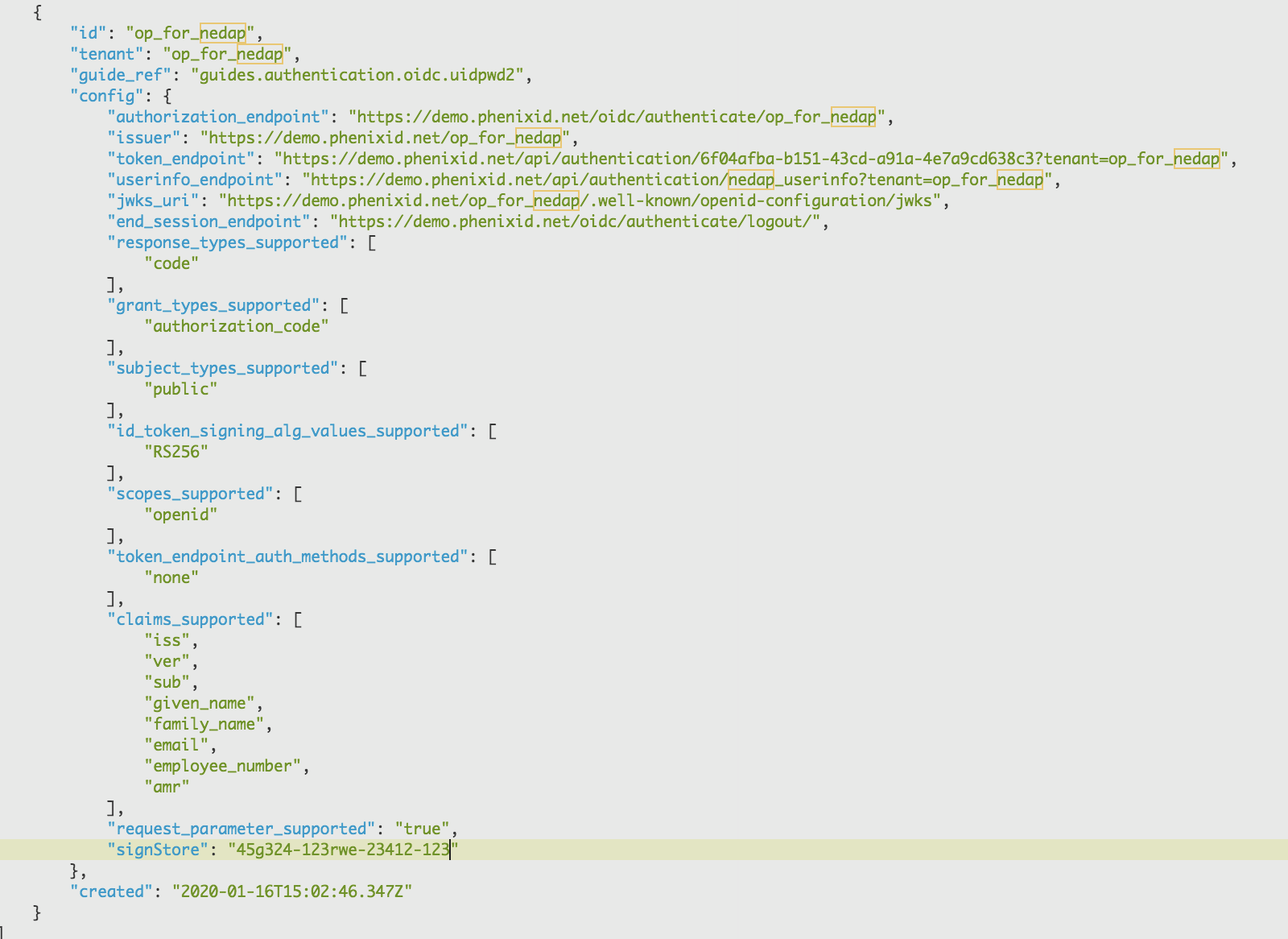Summary
This document will guide you through the steps to enable multi-factor authentication and Single-Sign On for the dutch healthcare administration solution Nedap Ons (https://nedap-healthcare.com/), using OpenID Connect.
System Requirements
- PhenixID Authentication Server 4.0 or higher
- Nedap technical contact
Instruction
Overview
This document will guide you through the steps to enable multi-factor authentication and Single-Sign on for Nedap Ons.
PhenixID Authentication Services acting as OpenID Connect Provider
Setup PAS as OpenID Connect Provider
- Login to Configuration Manager.
- Scenarios->OIDC
- Add a new relying party:
– client_id = nedap
– client_password = <create a password and set>
– Allowed redirect uri:s = <ask the Nedap admin which value(s) to use> - Create a new OpenID Connect provider by selecting the desired authentication method. Follow the scenario guidelines for values.
Use the Authorization Code Flow.
Allow nedap as an allowed RP to use the OP. - (Points 6-9 below is only necessary with PAS version 4.0 or previous).
- Click Execution flow
- Expand Token endpoint
- Click Add Valve
- Select PropertyAddValve
- Enter name = token_type and value = Bearer. Make sure the valve is placed last in the execution flow.

- Save the changes
- Set the proper amr claim value by following this guide.
- Click General
- Click View OP Discovery
- Copy the jwks_uri value.
Example:
- Open the copied address
- Copy the row defining the kid value. Paste the result in a text editor (for temporary storage).

- Go back to Configuration Manager->Scenarios->Your OP->Execution flow
- Expand token endpoint
- Expand the GenerateJwtTokenVavle
- Click Advanced
- Copy the ID valve
- Click the top Advanced tab
- Click on the pen to the right of pipe valves
- Search, paste the ID value
- In the GenerateJWTTokenVavle configuration, add the kid-value to the configuration. Example:
.
.
“config”: {
“subjectattribute”: “{{session.user_id}}”,
“keystore”: “45g324-123rwe-23412-123”,
“expire_seconds”: “90”,
“kid”: “aDsxKfK5yr3jp3zRJwicxBV3B5o”,
.
- Click Stage changes and Commit changes
- Click Advanced->Pipes.
- Add the pipe below.
{
“id”: “nedap_userinfo”,
“valves”: [
{
“name”: “ItemCreateValve”,
“config”: {
“dest_id”: “userinfo_props”
}
},
{
“name”: “PropertyAddValve”,
“config”: {
“name”: “authorization”,
“value”: “{{request.authorization}}”
}
},
{
“name”: “PropertyReplaceValve”,
“config”: {
“source”: “authorization”,
“dest”: “access_token”,
“token”: “Bearer “,
“replacement”: “”
}
},
{
“name”: “SessionResolveValve”,
“config”: {
“alias”: “{{item.access_token}}”,
“require_session”: “true”,
“require_auth_session”: “false”
}
},
{
“name”: “PropertyAddValve”,
“config”: {
“name”: “nonce”,
“value”: “{{session.nonce}}”
}
},
{
“name”: “PropertyAddValve”,
“config”: {
“name”: “given_name”,
“value”: “{{session.givenName}}”
}
},
{
“name”: “PropertyAddValve”,
“config”: {
“name”: “family_name”,
“value”: “{{session.sn}}”
}
},
{
“name”: “PropertyAddValve”,
“config”: {
“name”: “sub”,
“value”: “{{session.user_id}}”
}
},
{
“name”: “PropertyAddValve”,
“config”: {
“name”: “employee_number”,
“value”: “{{session.user_id}}”
}
},
{
“name”: “PropertyAddValve”,
“config”: {
“name”: “email”,
“value”: “{{session.mail}}”
}
},
{
“name”: “PropertyRemoveValve”,
“config”: {
“name”: “access_token,authorization”
}
}
]
} - Click Stage changes and commit changes
- Click Advanced->OIDC OP
- Locate the OP created in previous step
– Add a userinfo_endpoint param.
“userinfo_endpoint”: “https://<your_phenixid_server_domain>/api/authentication/nedap_userinfo?tenant=<the tenant id>”,
– Add values to the claims_supported array:
“email”,
“employee_number”,
“amr”
Example:

- Click Stage changes and commit changes
- Click Scenarios->OIDC-><Your OP>
- Click View OP Discovery
- Copy the OP discovery URL and send it, together with client_id and client_secret, to the Nedap administrator
Configure Nedap
- The Nedap administrator will handle this part.
Test
The Nedap administrator will supply instructions on how to test the setup.
DISCLAIMER
Information provided in this document is for your information only. PhenixID makes no explicit or implied claims to the validity of this information. Any trademarks referenced in this document are the property of their respective owners.The origin of this information may be internal or external to PhenixID. PhenixID makes all reasonable efforts to verify this information.
PhenixID - support.phenixid.se